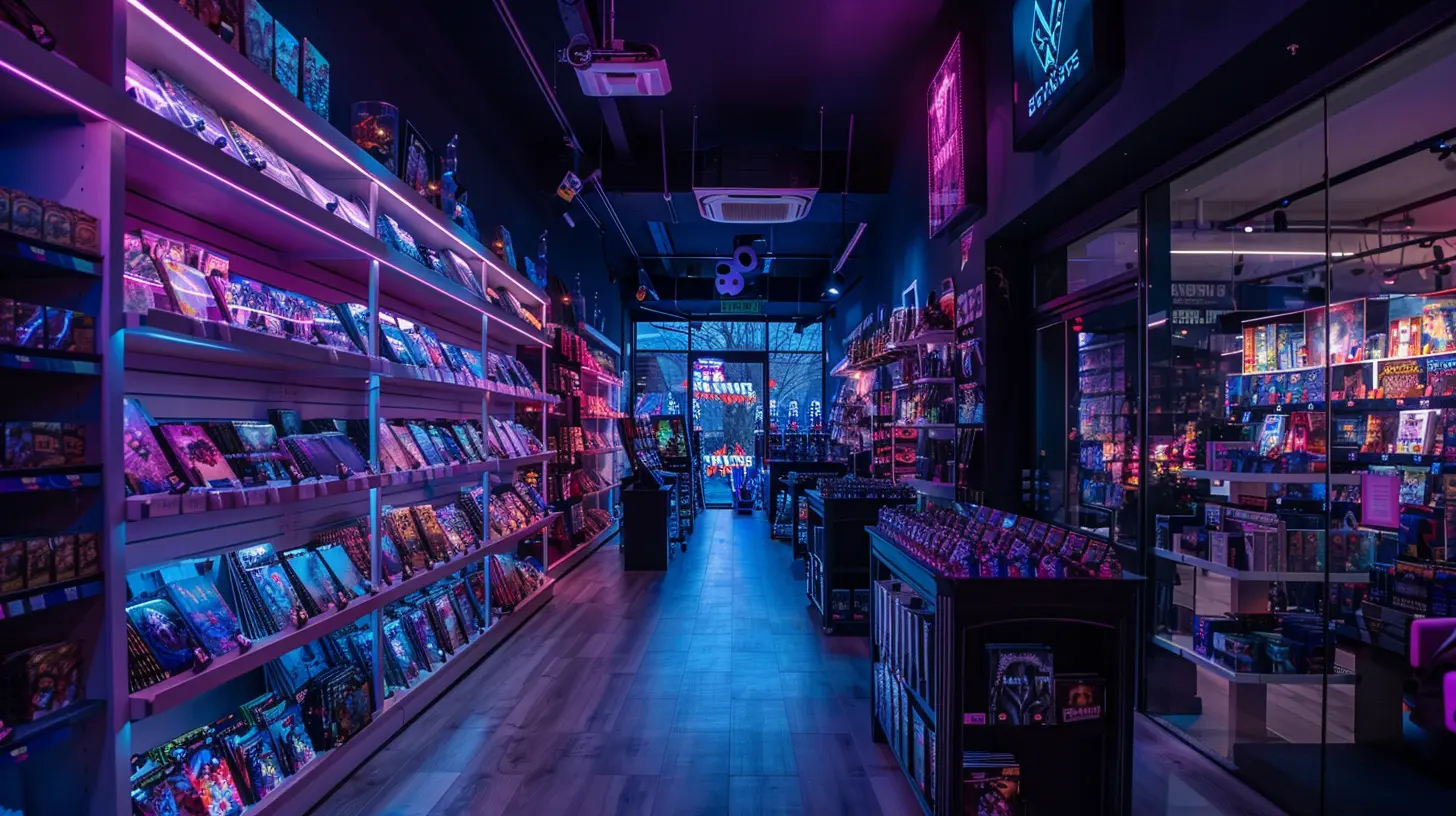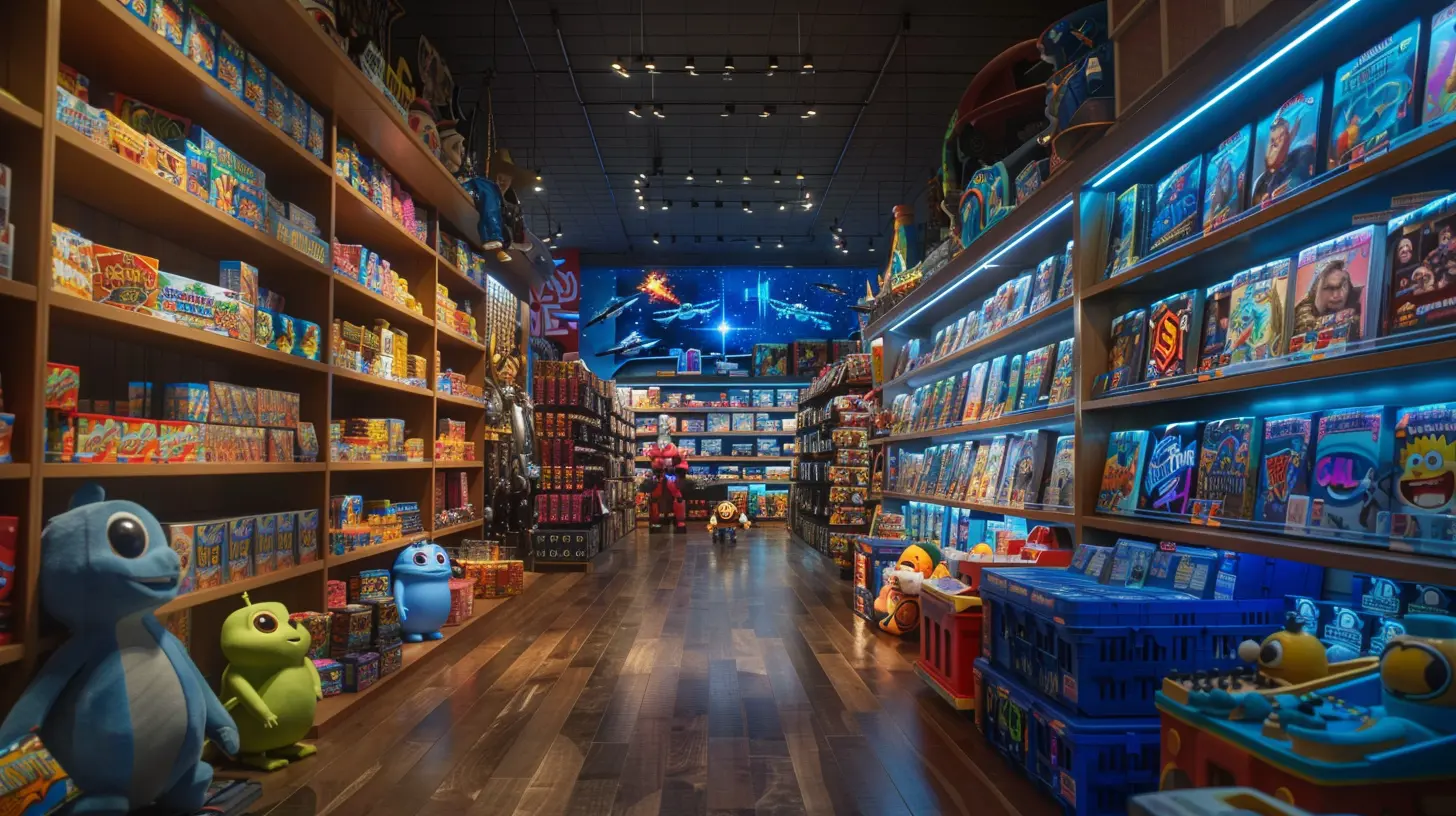Behind the Pricing Strategy: Understanding Epic Games Store's Sales
15 August 2025
When the Epic Games Store first launched in December 2018, it disrupted the gaming industry in more ways than one. From its exclusive titles to the free weekly games that make PC gamers everywhere swoon, Epic Games didn’t just walk into the market—it kicked the door down. But there's one thing that keeps us coming back, time and time again: their sales! And let’s be real, who doesn’t love snagging a AAA game for half the price or a bundle deal for mere pocket change?
However, have you ever stopped to think about what’s really behind the Epic Games Store's pricing strategy? Why are their sales so aggressive? Is there some method to the madness of their discounts and freebies? In this article, we dive into the nitty-gritty of Epic’s sales tactics, peeling back the layers to better understand how their pricing strategy works and why it’s so effective.
The Competitive Battleground: Stealing the Limelight from Steam
First off, let’s address the elephant in the room: Valve’s Steam. For years, Steam reigned supreme as the platform for PC gamers. But when Epic came stomping in, it wasn’t content to just snatch a piece of the pie—it wanted the whole bakery. And how do you make loyal Steam users consider jumping ship? By offering deals they simply can’t refuse.Epic Games Store has positioned itself as the Robin Hood of the gaming world, handing out insane discounts and generous free games while taking only a modest cut from developers. Unlike Steam, which takes a 30% cut from game sales, Epic takes just 12%. This allows developers to earn more revenue per sale and gives Epic the wiggle room to price games more competitively.
Remember those Epic Mega Sales where you can grab a game worth $60 for as little as $10? Yeah, that’s a power move. These sales not only attract bargain hunters but also generate major buzz, shifting attention away from Steam’s ecosystem. It’s like throwing a louder, wilder party next door while your competitor’s guests start sneaking out to join you instead.
Free Games: A Trojan Horse in the Pricing Strategy
You’ve probably noticed how Epic hands out free games every week—like Santa Claus on a sugar rush. But what’s the catch? How do they make money when they’re just giving stuff away? The answer lies in long-term investment and user acquisition.Think of free games as bait. When you download a free game from the Epic Games Store, you’re forced to create an account (if you don’t already have one), and just like that, you’re part of the Epic ecosystem. Once you’re in, Epic is betting that you’ll eventually stick around to buy something, even if it’s months or years later. And it works! It’s the same principle as giving someone a free taste of a product at the store—eventually, they’ll grab a box and head to the checkout.
Additionally, when Epic negotiates with developers to offer a game for free, they often compensate them for the lost sales. This creates a win-win situation where developers get paid upfront, gamers score freebies, and Epic grows its user base. It’s like casting a giant net into the ocean—you might let a few fish (gamers) swim away for free, but the ones that stay bring in the real haul.
The Exclusivity Game: A Pricing Tug-of-War
Epic’s pricing strategy isn’t just about discounts and freebies; exclusivity plays a massive role in their grand plan. By inking deals with developers to make certain titles temporarily exclusive to the Epic Games Store, the company creates scarcity and demand. Think about it: If you want to play a hotly anticipated game like “Borderlands 3” or “Metro Exodus” on PC, you have to get it from Epic. No Steam, no excuses.But here’s the kicker: Developers are often incentivized with massive payouts to go exclusive with Epic. These lump-sum payments give developers a cushion, allowing them to lower the price of their games during sales without sweating their profit margins. For gamers, this can mean better deals down the line. For Epic, it means more attention on their store. And for Steam? Well, they’re probably sweating bullets.
Epic uses exclusivity as a tool to keep gamers glued to their platform, all while fostering a sense of FOMO (fear of missing out). It’s like having the only candy bar in the neighborhood—you can charge less for it because people have to come to you anyway.
Discount Coupons: The Cherry on Top
Let’s not forget those glorious $10 discount coupons Epic hands out like candy during their Mega Sales. Bought a $14.99 indie game? Here, have a coupon. Still have a game from your wishlist sitting in your cart? Bam, another $10 off. These coupons are a genius pricing tool for a few reasons.Firstly, they create a sense of urgency. The coupon expires soon? Better use it now! Secondly, it lowers the psychological barrier to purchase. That $30 game suddenly feels like a steal at $20, even if you hadn’t planned on buying it in the first place. And thirdly, they encourage gamers to spend more than they initially intended. Sure, you just wanted one game, but now you’re adding a few extra titles to your cart, because hey, you’ve got a coupon.
It’s a bit like going to the store with a voucher for $5 off. You weren’t planning to shop that day, but now that you have it, why not stock up on more snacks? Epic knows this consumer behavior inside out and uses it to their advantage.
Building Loyalty Through Value
Epic Games Store’s pricing strategy isn’t just about aggressive sales tactics—it’s about building loyalty through perceived value. Gamers who score massive savings or grab free games every week begin to associate the platform with generosity. They’re more likely to think, “Epic takes care of its players. Maybe I’ll buy my next game here instead of on Steam.”Moreover, these tactics create word-of-mouth marketing. When gamers share news about the latest insane sale or freebie, it spreads like wildfire. Epic gets free advertising, and more potential customers flock to the store. It’s a cycle of goodwill and FOMO that keeps their ecosystem thriving.
The Future of Epic Games Store’s Pricing Strategy
Now, here’s the big question: How sustainable is all of this? Can Epic keep up the deep discounts, free games, and coupon giveaways forever? Probably not. Running these promotions isn’t cheap, and at some point, the freebies may slow down.However, Epic’s long-term goal isn’t just about sales—it’s about building an ecosystem. By pulling in more users and encouraging game developers to publish on their platform, Epic lays the groundwork for a future where they don’t have to rely as heavily on aggressive tactics. Over time, their user base may become self-sustaining, with gamers habitually visiting the store even when there’s no sale going on.
In the meantime, though, we’ll gladly take the deals as they come. After all, who doesn’t love getting more bang for their buck?
Conclusion
Epic Games Store’s pricing strategy is a fascinating mix of psychology, market disruption, and straight-up generosity. They’ve mastered the art of hooking gamers with irresistible sales, building loyalty through freebies, and locking in exclusivity deals that keep the competition on their toes. While their methods might not be sustainable forever, there’s no denying the impact they’ve had on the gaming industry. Whether you love them or hate them, you can’t ignore them.So, the next time you snag that deeply discounted game or claim your freebie for the week, take a moment to appreciate the strategy behind it all. Epic isn’t just selling games—they’re selling a vision, and so far, we’re all buying into it.
all images in this post were generated using AI tools
Category:
Epic Games StoreAuthor:

Kaitlyn Pace
Discussion
rate this article
1 comments
Molly Dorsey
Understanding Epic Games Store's pricing strategy is key to unlocking amazing gaming experiences! Embrace the incredible deals and discover new favorites—every sale is an opportunity. Let's celebrate the passion behind gaming and the ever-evolving landscape that keeps us all excited!
September 4, 2025 at 3:15 AM

Kaitlyn Pace
Absolutely! Epic Games Store's pricing strategy truly transforms our gaming experience, making it accessible and thrilling to explore new titles. Sales are a celebration of our passion for gaming!


